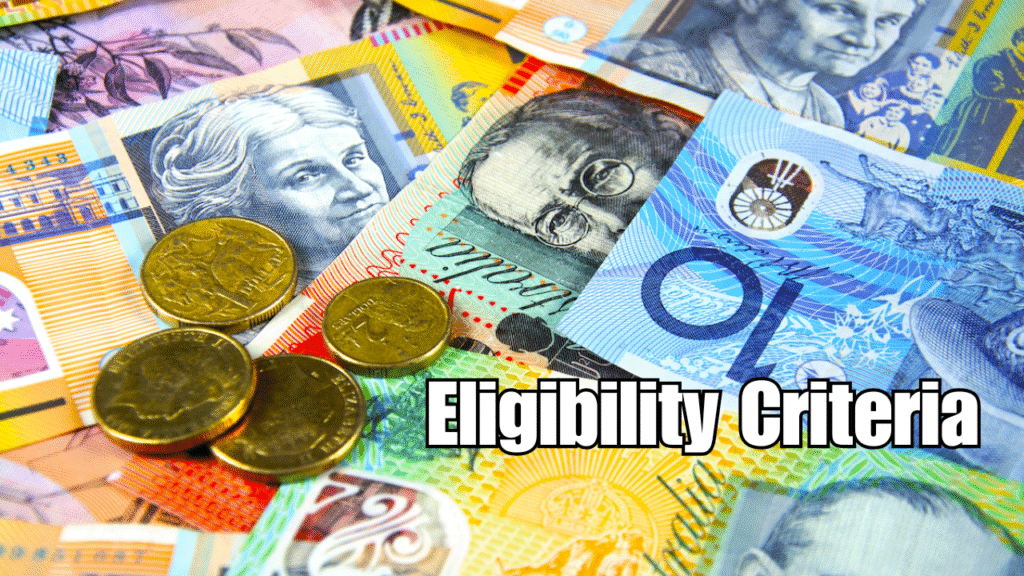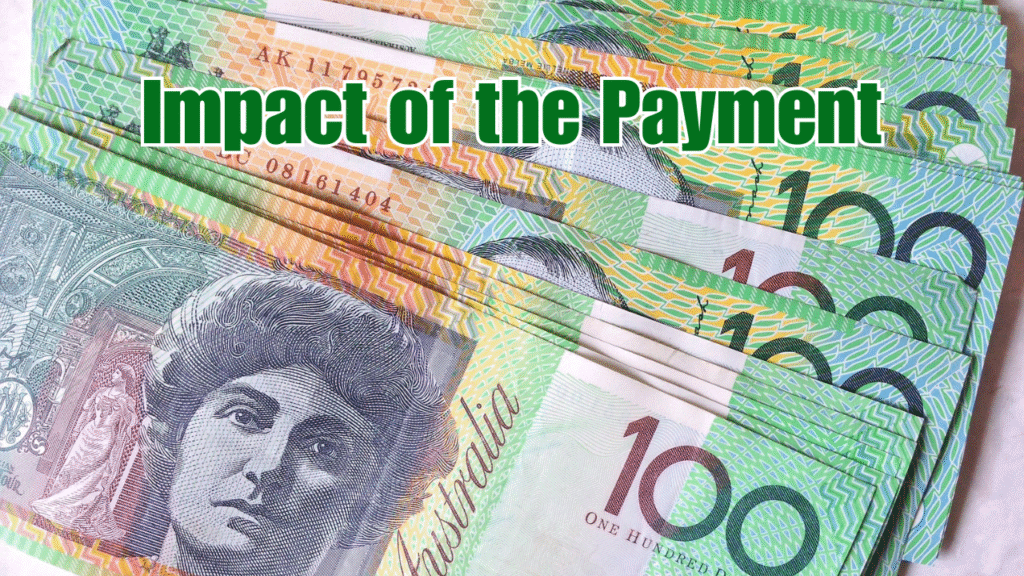Introduction
In response to the growing financial pressures facing many Australians due to inflation, rising interest rates, and the ongoing cost of essential goods and services, the Australian Government has introduced several cost-of-living support measures. Among the most widely discussed of these is the June $500 Cost of Living Payment, aimed at supporting low to middle-income individuals and households who may be struggling to keep up.
This article provides an in-depth look at everything you need to know about the June $500 Cost of Living Payment – including eligibility, application procedures, payment timelines, and more. Whether you’re a pensioner, a jobseeker, a student, or someone working part-time or full-time, this article will help you understand how to make sure you don’t miss out.
What Is the $500 Cost of Living Payment?
The $500 Cost of Living Payment is a one-off, tax-free payment provided by the Australian Government as part of its ongoing commitment to economic relief and welfare support. This payment is intended to help cover essential living expenses such as rent, groceries, transport, healthcare, and utilities.
This payment is not a loan or advance – it does not need to be repaid. It’s designed to directly supplement the income of eligible citizens and residents, ensuring that those most affected by cost-of-living pressures receive timely assistance.
Purpose of the Payment
The payment is part of a broader cost-of-living relief package that includes:
- Energy bill subsidies
- Fuel tax relief
- Rent assistance boosts
- Increases in existing Centrelink payments
- Medicare bulk billing expansion
The goal is to stabilize economic well-being and increase the disposable income of vulnerable individuals.
Key Features of the June $500 Payment
| Feature | Description |
|---|---|
| Amount | $500 (one-time) |
| Taxable? | No – it is tax-free |
| Repayment Required? | No – it is not a loan |
| Eligibility | Based on income level, benefits received, residency status |
| Application Required? | May vary – automatic for most Centrelink recipients |
| Payment Method | Direct deposit to bank accounts or Centrelink-linked accounts |
| Distribution Date | June 2025 (exact dates depend on Centrelink category and payment schedule) |

Eligibility Criteria
To qualify for the $500 cost-of-living payment in June, you must meet at least one of the following criteria. Please note that these criteria are subject to verification by Centrelink or Services Australia:
1. Receive Eligible Centrelink Payments
If you are already receiving one or more of the following, you’re likely eligible:
- JobSeeker Payment
- Age Pension
- Disability Support Pension
- Parenting Payment
- Youth Allowance
- Austudy or ABSTUDY
- Carer Payment or Carer Allowance
- Family Tax Benefit (FTB) Part A or Part B
- Commonwealth Seniors Health Card Holders
2. Meet the Income Threshold
Even if you are not currently receiving Centrelink benefits, you may still qualify if your income falls below a certain annual threshold, generally around:
- Singles: Below $70,000
- Couples: Combined income below $120,000
- Families with children: Thresholds increase based on number of dependents
3. Residency Status
You must be:
- An Australian citizen, or
- A permanent resident, or
- A refugee/humanitarian visa holder, or
- A special category visa holder (e.g., eligible New Zealand citizens)
You must also be physically residing in Australia during the eligibility period.
How to Apply for the $500 Payment
✅ For Existing Centrelink Recipients
Most recipients of eligible welfare payments will receive the $500 payment automatically. No additional action is required. However, ensure that your MyGov and Centrelink details are up-to-date, including:
- Bank account details
- Address and contact number
- Income declarations (if required)
✅ For Non-Recipients
If you are not receiving any payments from Centrelink but believe you meet the criteria:
- Create or log into your MyGov account
- Link it to Centrelink, if not already linked
- Navigate to “Apply for a Payment or Concession”
- Choose “Cost of Living Support” and follow the instructions
- Upload necessary documents (proof of income, ID, residency)
- Submit the application and await verification
Tip: It’s advisable to apply early in June to avoid processing delays.
Required Documentation
Have the following documents ready:
- Proof of identity (Driver’s Licence, Passport, Medicare Card)
- Proof of income (pay slips, tax returns, bank statements)
- Residency or visa status documentation
- Current address proof (utility bills, lease agreement)
Payment Timeline
| Category | Estimated Payment Date |
|---|---|
| Age Pensioners | June 5 – June 10, 2025 |
| JobSeeker Recipients | June 10 – June 15, 2025 |
| Disability Support Pensioners | June 12 – June 20, 2025 |
| Youth Allowance/Austudy | June 15 – June 22, 2025 |
| Non-Centrelink Applicants | June 20 – June 30, 2025 |

Impact of the Payment
✅ Short-Term Benefits
- Reduced financial strain
- Timely bill payments
- Increased spending capacity
- Improved access to food, medicine, and transport
✅ Long-Term Support
Although the $500 is a one-time payment, it reflects the government’s broader welfare strategy. It is also seen as a test case for future payments, which may lead to ongoing reforms in how inflation support is structured.
What to Do if You Don’t Receive It
If you’re expecting the payment and haven’t received it by the end of June:
- Log into MyGov and check payment status
- Contact Centrelink directly via phone or in-person
- Submit a payment review request or missing payment form
- If needed, file a complaint via the Commonwealth Ombudsman
How to Make the Most of the $500
Here are smart ways to use this one-off payment:
- Pay off utility or rent arrears
- Buy essential groceries or medication
- Reduce credit card debt
- Set it aside for emergencies
- Use it for public transport passes or car fuel
Preventing Scams
Scammers often exploit announcements like this. Be cautious of:
- Messages asking for your MyGov login
- Calls demanding banking details to “release” the payment
- Fake government website links
Only use official gov.au platforms and never share your login info with anyone.
Summary Table: Key Facts
| Section | Details |
|---|---|
| Purpose | Cost-of-living relief for low-income Australians |
| Amount | $500 (tax-free, non-repayable) |
| Payment Date | Throughout June 2025 |
| Who Qualifies | Centrelink recipients, low-income workers, eligible residents |
| Application Method | Automatic for Centrelink users; manual for others via MyGov |
| Required Documents | ID, income proof, residency status, bank details |
| Payment Method | Direct bank deposit |
| Fraud Alert | Only access via MyGov or official Centrelink channels |
Conclusion
The June $500 Cost of Living Payment represents a vital intervention by the Australian Government to assist individuals and families in managing rising living expenses. Whether you’re a pensioner, student, job seeker, or low-income worker, this payment can provide critical short-term financial relief.
While the amount may seem modest, timely assistance like this can go a long way when allocated wisely. From paying off overdue bills to covering essential daily needs, this one-time benefit ensures that the most vulnerable Australians are not left behind.
If you meet the eligibility requirements, don’t miss the opportunity to claim your share of this relief. Check your MyGov account, confirm your Centrelink details, and act early to secure the support you’re entitled to.
FAQs
1. Do I need to pay tax on the $500 cost-of-living payment?
No, the $500 payment is tax-free and does not affect your tax return.
2. Will this payment affect my other Centrelink benefits?
No, the $500 payment is considered a bonus and won’t reduce or interfere with your existing benefits.
3. Can I receive the payment if I’m employed part-time or casually?
Yes, if your total income is under the threshold and you meet other criteria, you’re still eligible.
4. What should I do if I accidentally delete the Centrelink message or email?
Log into your MyGov account. All official notifications are stored there under your inbox.
5. Is this a recurring payment?
As of now, it’s a one-off payment for June 2025. Future payments depend on government budget decisions and inflation data.


